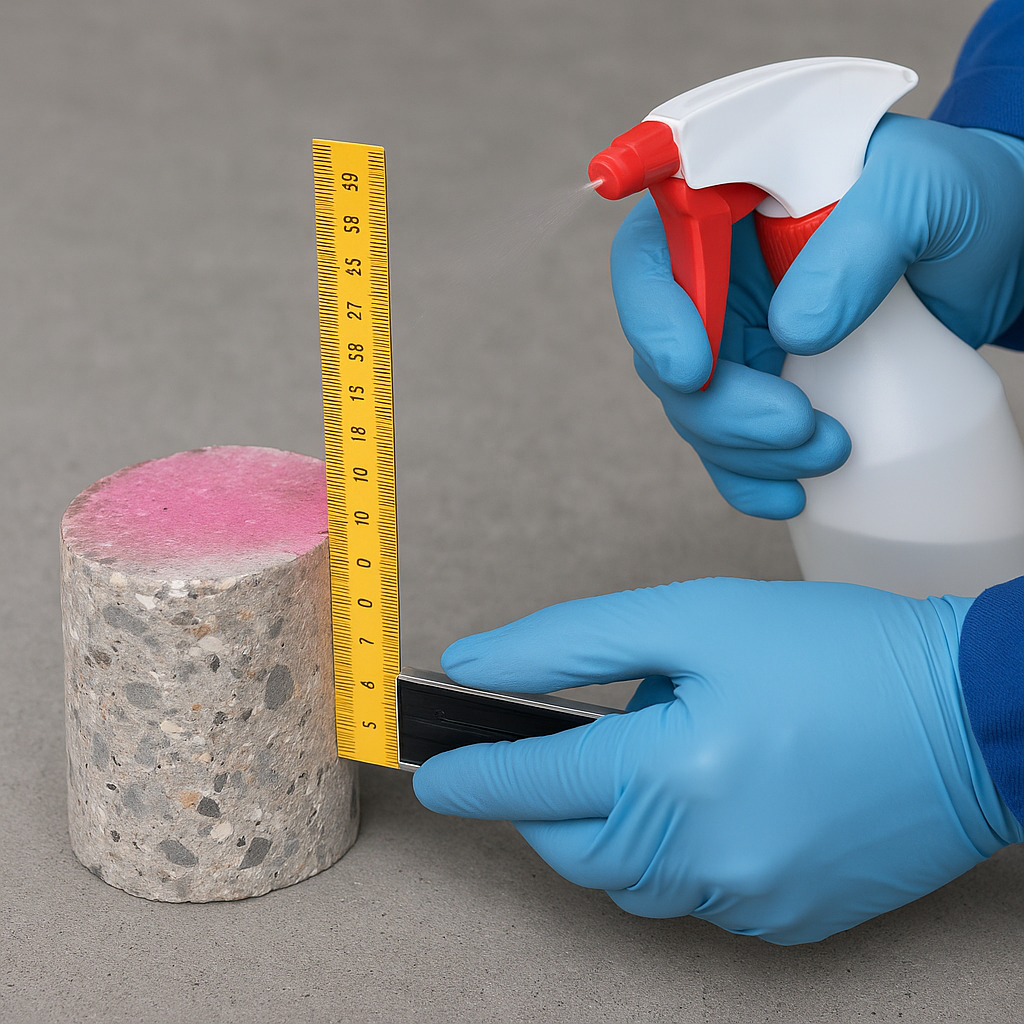Carbonation Depth Measurement is a concrete durability test used to determine the depth of carbonation in reinforced concrete structures. Carbonation occurs when atmospheric carbon dioxide (CO₂) penetrates the concrete and reacts with calcium hydroxide to form calcium carbonate, reducing the alkalinity and leading to corrosion of embedded steel reinforcement.
This test is widely used for:
• Assessing the service life of reinforced concrete structures
• Identifying areas prone to steel reinforcement corrosion
• Evaluating the effectiveness of protective coatings and repair works
• Condition assessment of bridges, buildings, chimneys, silos, and other RCC structures
• Quality control in construction and rehabilitation projects
Method Used: The test is typically performed by spraying a phenolphthalein indicator on freshly broken concrete surfaces. Areas with carbonation remain colorless, while uncarbonated regions turn pink, allowing precise measurement of carbonation depth.

We provide accurate Carbonation Depth Measurement services with detailed reports, ensuring reliable evaluation of concrete durability for infrastructure in sectors such as Construction, Power, Oil & Gas, Industrial Plants, and Civil Engineering projects.
Enquiry